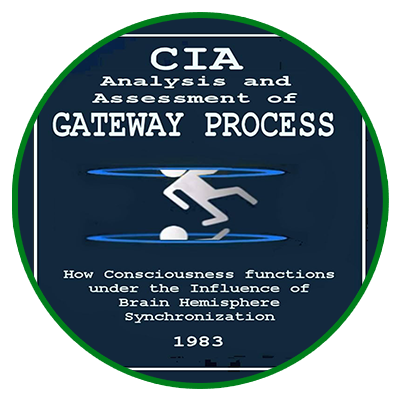Revold Blog – Hosting All Your AI Locally: Unlock the Full Potential of AI on Your PC or Server
Artificial Intelligence (AI) is revolutionizing industries, but cloud-based AI solutions often come with privacy concerns, high costs, and latency issues. What if you could run AI models entirely on your own hardware—whether it’s your personal PC or a dedicated server?
Welcome to local AI hosting, where privacy, speed, and control come together to create a seamless AI development experience. In this guide, we’ll show you how to set up a powerful AI environment using OpenWebUI, Ollama, WSL, Docker, and Stable Diffusion—all running locally.
Why Choose Local AI Hosting?
Cloud AI services are convenient but introduce several drawbacks:
- Privacy Risks – Your data is stored on third-party servers.
- Recurring Costs – Cloud subscriptions and API fees accumulate over time.
- Latency & Connectivity Issues – AI performance depends on internet speed.
- Limited Customization – You are restricted to the provider’s models and settings.
By hosting AI locally, you eliminate these challenges and gain:
- Full Control – Configure models according to your requirements.
- Faster Processing – No delays due to network or cloud service availability.
- Enhanced Security – Your data never leaves your machine.
- No Ongoing Fees – Once set up, you use AI without additional costs.
- Offline Functionality – AI tools run even without an internet connection.
- Flexible Experimentation – Test the latest AI models freely.
With OpenWebUI and Ollama, running and interacting with AI models becomes simple, secure, and highly efficient. Now, let’s set up your local AI environment.
Step-by-Step Guide to Hosting AI Locally
Set Up Windows Subsystem for Linux (WSL)
WSL allows you to run a full Linux environment on Windows, making it easier to work with AI tools.
Install WSL and Ubuntu
Open PowerShell (as Administrator) and run:
wsl –install
Once installed, launch Ubuntu with:
wsl -d Ubuntu
Install Ollama – A Powerful AI Model Runner
Ollama simplifies the process of running large AI models on your local machine.
Download and Install Ollama
Add an AI Model (Example: Llama 2)
# Update package lists
sudo apt-get update
# Install necessary packages
sudo apt-get install ca-certificates curl
# Add Docker’s official repository
sudo install -m 0755 -d /etc/apt/keyrings
sudo curl -fsSL https://download.docker.com/linux/ubuntu/gpg -o /etc/apt/keyrings/docker.asc
sudo chmod a+r /etc/apt/keyrings/docker.asc
echo “deb [arch=$(dpkg –print-architecture) signed-by=/etc/apt/keyrings/docker.asc] \
https://download.docker.com/linux/ubuntu $(. /etc/os-release && echo “$VERSION_CODENAME”) stable” | \
sudo tee /etc/apt/sources.list.d/docker.list > /dev/null
# Install Docker and its components
sudo apt-get update
sudo apt-get install docker-ce docker-ce-cli containerd.io docker-buildx-plugin docker-compose-plugin
ollama pull llama2
Monitor GPU Performance (Linux Users)
If you have an NVIDIA GPU, track performance in real-time:
watch -n 0.5 nvidia-smi
This helps optimize AI processing efficiency.
Install Docker – Run AI Apps in Containers
Docker simplifies AI deployment by running software in isolated environments.
Install Docker on Ubuntu (Inside WSL)
docker run -d –network=host -v open-webui:/app/backend/data \
-e OLLAMA_BASE_URL=http://127.0.0.1:11434 \
–name open-webui –restart always ghcr.io/open-webui/open-webui:main
# Update package lists
sudo apt-get update
# Install necessary packages
sudo apt-get install ca-certificates curl
# Add Docker’s official repository
sudo install -m 0755 -d /etc/apt/keyrings
sudo curl -fsSL https://download.docker.com/linux/ubuntu/gpg -o /etc/apt/keyrings/docker.asc
sudo chmod a+r /etc/apt/keyrings/docker.asc
echo “deb [arch=$(dpkg –print-architecture) signed-by=/etc/apt/keyrings/docker.asc] \
https://download.docker.com/linux/ubuntu $(. /etc/os-release && echo “$VERSION_CODENAME”) stable” | \
sudo tee /etc/apt/sources.list.d/docker.list > /dev/null
# Install Docker and its components
sudo apt-get update
sudo apt-get install docker-ce docker-ce-cli containerd.io docker-buildx-plugin docker-compose-plugin
Deploy OpenWebUI – A Web Interface for AI Models
OpenWebUI provides a user-friendly interface to interact with AI models.
Run OpenWebUI in a Docker Container
docker run -d –network=host -v open-webui:/app/backend/data \
-e OLLAMA_BASE_URL=http://127.0.0.1:11434 \
–name open-webui –restart always ghcr.io/open-webui/open-webui:main
Install Stable Diffusion – AI-Powered Image Generation
Stable Diffusion lets you generate high-quality images locally on your machine.
Install Dependencies for Stable Diffusion
sudo apt install -y make build-essential libssl-dev zlib1g-dev \
libbz2-dev libreadline-dev libsqlite3-dev wget curl llvm libncurses5-dev \
libncursesw5-dev xz-utils tk-dev libffi-dev liblzma-dev git
Install Pyenv (For Managing Python Versions)
curl https://pyenv.run | bash
Install Python 3.10, required for Stable Diffusion:
pyenv install 3.10
pyenv global 3.10
Download & Run Stable Diffusion Web UI
wget -q https://raw.githubusercontent.com/AUTOMATIC1111/stable-diffusion-webui/master/webui.sh
# Make it executable
chmod +x webui.sh
# Run Stable Diffusion
./webui.sh –listen –api
Now, you can create AI-generated images locally, without relying on external servers.
Conclusion: Build Your Own AI Lab
By setting up WSL, Ollama, Docker, OpenWebUI, and Stable Diffusion, you transform your PC or server into a powerful, self-hosted AI development environment.
Why This Matters:
Gain full creative control over AI-generated content.
Develop and experiment with AI models without cloud restrictions.
Ensure maximum privacy and security by keeping data local.
Reduce costs by eliminating cloud-based AI subscription fees.
Enhance performance with direct GPU access and local processing.
Ready to take control of your AI future? Set up your local AI environment today!


